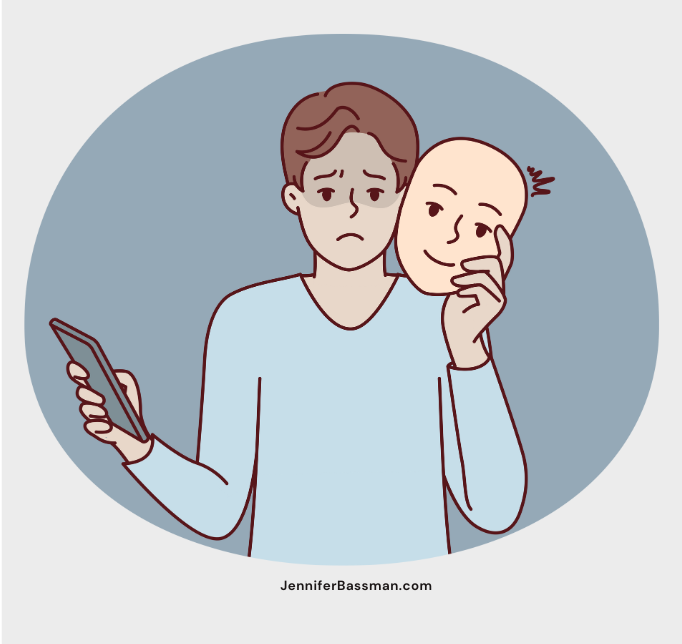The Invisible Burnout: Hidden Signs Women Overlook
Being a woman is hard – you always want to buy something, kill someone, lose weight, and eat something sweet.
Women experience complex and chaotic lives that increase daily stress. This leads many to ignore and “push through” exhaustion, overwhelm, and frustration.
All of this contributes to hidden signs of burnout in women. Are you overlooking any in yourself?
Women Are Twice as Likely to Burnout Than Men
Studies on burnout show that women are more likely to experience burnout than men. Twice as likely, actually.
Burnout for women is chronic over-responsibility disguised as being a team player. It’s the expectation that we’ll handle everything because we always have.
And when we crash? Society doesn’t say, You’ve done too much. It whispers, You should have balanced better. (Oh, thanks. Let me just balance better while I Google “how to fake my own disappearance.”)
What doesn’t kill us, tends to give us unhealthy coping mechanisms that make chronic stress and burnout a lot less obvious. Women choke down the frustration and anger they may feel when seeming emotional isn’t considered appropriate, which then sits in our psyche as unresolved stress.
Women are twice as likely to burnout because we face unique obstacles that compound the amount of stress we experience. For example:
- Managing the mental load of our families
- Women are more likely to be the primary caregiver to children and elderly parents
- Unequal household labor
- Unrealistic societal expectations
While common symptoms like fatigue, reduced effectiveness, and stress are well-known, there are subtle, often-overlooked signs that indicate burnout.
So, if you have been trying to figure out when you can have that meltdown you’re entitled to, I’d say now is a reasonable time to get one on your schedule.
8 Hidden Signs of Burnout in Women
- The “Competent Woman” Trap
Many women pride themselves on being high achievers — handling careers, relationships, and household responsibilities with the finesse of a circus performer juggling flaming swords.
This pressure to be “capable” at all times can lead to burnout disguised as hyper-productivity. Instead of slowing down, women take on even more, unaware (or just ignoring) that they’re running on empty.
- Burnout That Looks Like Productivity
There comes a point in your workday when you know you’re no longer going to be productive. If you’re experiencing chronic stress and burnout, that’s usually by 9:13 a.m..
Some of the many things this comes from are overcommitting, pushing past your exhaustion, staying late, or taking on responsibility that isn’t yours. You might be mistaking burnout for dedication. The inability to pause and rest is often a defense mechanism against deeper fatigue.
- Emotional Numbness, Not Just Exhaustion
If you can’t tell if you are doing well or have stopped giving a sh!t, this may be your brain signaling that emotional exhaustion has turned into emotional numbness.
Rather than feeling drained, some women experience emotional detachment. Joy, excitement, and even sadness might feel muted. This numbness is the nervous system’s way of protecting itself from overwhelming stress.
Being a woman doesn’t mean whispering “WTF?!?!” to yourself a thousand times a day.
- Chronic Indecision
While bad decisions often make good stories, struggling with simple choices like what to wear or eat feel overwhelming. Decision fatigue is a clear indicator that mental overload is taking a toll.
Deciding which pants to put on – smarty or fancy – shouldn’t send you spiraling.
- Sensory Overload and Irritability
You’re a busy lady. You’re trying to excel in your career, maintain a social life, raise kids, drink enough water, and stay sane.
Now normal sounds, lights, and even social interactions have become unbearable. If you’re feeling easily irritated by things that never used to bother you, your nervous system could be signaling burnout.
- The Sudden Need for Isolation
Is everyday a beautiful day to leave you alone?
Craving alone time isn’t just about being introverted — it could be a sign that your emotional reserves are depleted. Socializing, even with loved ones, feels like another exhausting task rather than a source of joy.
- The “I’m Fine” Syndrome
There is scientific evidence about the speed at which a woman says “I’m fine” is directly proportional to the severity of the sh!t storm that’s about to follow.
Women are experts at masking exhaustion. If you frequently say “I’m fine” while experiencing frequent headaches, digestive issues, or body aches, your body might be screaming for rest while your mind insists you keep going.
- Guilt Instead of Rest
Why is it that you feel like you should have backed a few bags for a guilt trip, when you deserve to take a break?
Taking time off should be refreshing, but if you feel guilty for not being “productive,” it’s a red flag. True rest is essential, yet many women struggle to allow themselves to recharge without feeling like they’re falling behind.
What’s the Next Step?
For most women, you would like the answer to that question to be: light a match, drop it, and walk away…
If you recognize these signs in yourself, it’s time to take action. Here’s where to begin:
- Acknowledge the Signs: Awareness is the first step toward recovery because you can’t fix what you don’t know about.
- Set Boundaries: Learn to say no without guilt. Sometimes it’s best to say, “You know what that sounds like? Not my problem.”
- Prioritize Rest: True rest means physical, mental, and emotional relaxation. Sleep is not a luxury, it’s essential. Try it sometime.
- Seek Support: A true friend is someone who knows how crazy you are and is still willing to be in public with you. Therapy, coaching, or simply talking to a trusted friend also count.
- Redefine Success: Success isn’t about exhaustion — it’s about sustainability. It can also be about the drinks you mix, the tables you dance on, and the friends you roll with.






